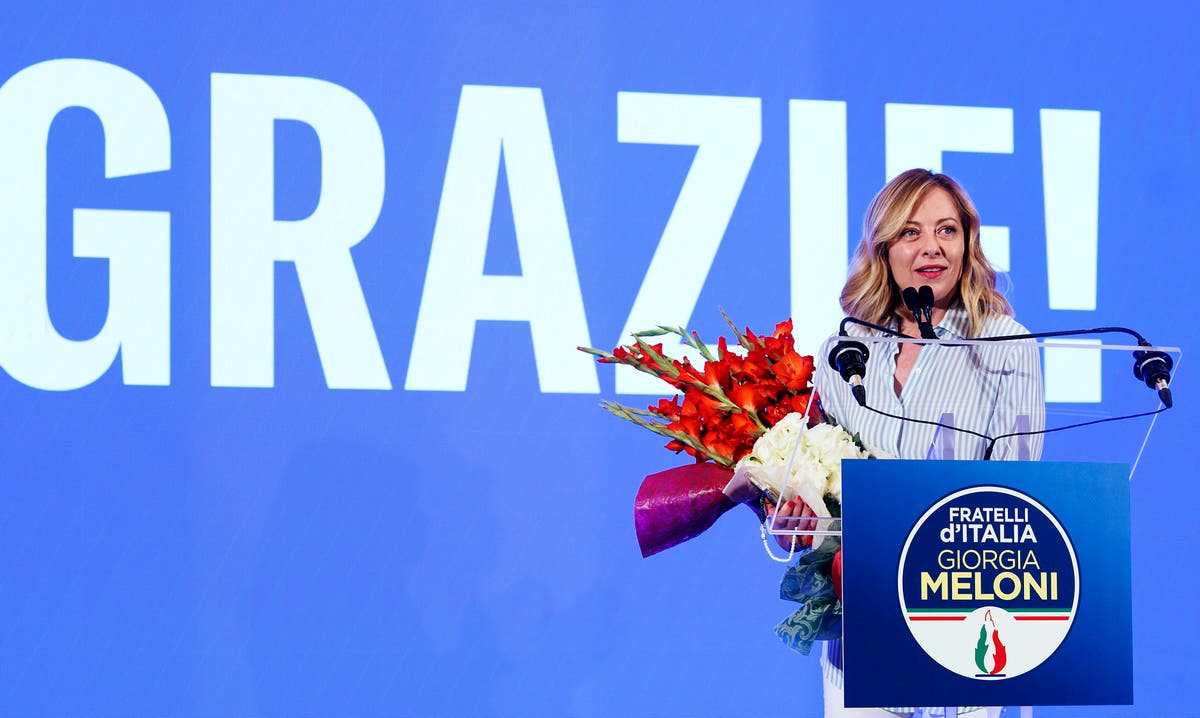Italian Premier Giorgia Meloni hosts this week’s summit of the Group of Seven industrialized nations as the most stable European Union leader.
Meloni’s German and French counterparts were shaken by European Parliamentary elections that fortified Meloni’s far-right Brothers of Italy as the strongest in Italy, setting her up as a possible bridge maker, if not kingmaker, in Europe.
Meloni’s solid results create a rare stability in Italian politics, as far-right parties rattled both French President Emmanuel Macron, who called snap elections after his party was eclipsed by Marine Le Pen’s National Rally, and German Chancellor Olaf Scholz, whose authority suffered a jolt after the far-right Alternative for German finished second, beating his Social Democrats.
“I am proud that this nations presents itself at the G7, and in Europe, as the strongest government of all,’’ Meloni told supporters early Monday. “This is something that has never happened in the past, and which is happening now. It is a satisfaction, and also a great responsibility.’’
Though the leader of a far-right party, Meloni continues to hew to the center, particularly on foreign policy, which has made her a reassuring trans-Atlantic partner as wars rage in Ukraine and Gaza.
She will solidify the role this week, leading the G7 meeting in the southern Puglia region from June 13-15, focusing on global conflicts, the spread of AI and on Africa, with a view in particular to Italy’s longstanding concern about uncontrolled migration and human traffickers.
“Meloni is the moderate face of this right-wing bunch,’’ said analyst Matteo Villa of the IPSI think tank in Milan. “Meloni is poised as a moderate center-right party now that has much consensus that can act as a bridge between the far right and the center right. Meloni is narrating herself as a much more moderate leader.”
While Meloni won office with a campaign the promised a full naval blockade of charity ships rescuing migrants from drowning in the Mediterranean, Villa noted that she moderated her policy in office and has instead directed the rescue ships to northern ports far from the search-and-rescue area. Such a policy is still protested by charities but is far from a blockade.
“These policies have changed, they have become more pragmatic,’’ Villa said.
As a result, Meloni is winning support from voters that don’t necessarily identify as far-right.
Brothers of Italy won 28.8% of the Italian vote in two days of polling in Italy that boosted their majority from national elections less than two years ago. The results also confirmed Meloni’s dominance in the governing coalition with right-wing anti-migrant Lega, led by Matteo Salvini, and the center-right Forza Italia party, led by Foreign Minister Antonio Tajani since founder Silvio Berlusconi’s death last year. Forza Italia won 9.6% of the vote, and Lega plunged to 9.1%.
The opposition Democratic Party also was strengthened, finishing with 24% of the vote and significantly narrowing the gap with Brothers of Italy. The result re-establishes the Democratic Party as the main opposition party, as the 5-Star Movement, which launched 15 years ago as a protest movement and rose to head a government, slid to 10% of the vote.
“We continue like a hammer every day to nail the Meloni government on social and wage issues that it ignores,’’ PD leader Elly Schlein said Monday. “Of course we will do so by working stubbornly, in a united way, to build an alternative that this country needs to this right.”









